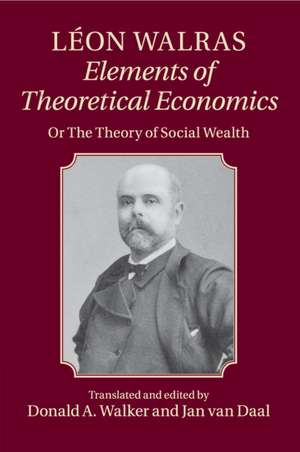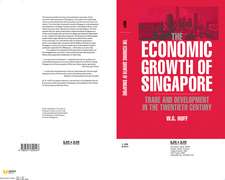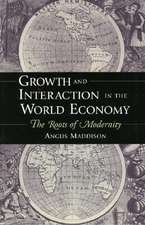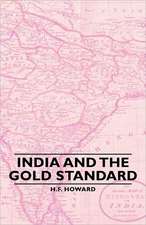Léon Walras: Elements of Theoretical Economics: Or, The Theory of Social Wealth
Autor Léon Walras Donald A. Walker, Jan van Daalen Limba Engleză Paperback – 15 mai 2019
| Toate formatele și edițiile | Preț | Express |
|---|---|---|
| Paperback (1) | 420.87 lei 6-8 săpt. | |
| Cambridge University Press – 15 mai 2019 | 420.87 lei 6-8 săpt. | |
| Hardback (1) | 1053.17 lei 6-8 săpt. | |
| Cambridge University Press – 22 oct 2014 | 1053.17 lei 6-8 săpt. |
Preț: 420.87 lei
Nou
Puncte Express: 631
Preț estimativ în valută:
80.53€ • 84.26$ • 66.90£
80.53€ • 84.26$ • 66.90£
Carte tipărită la comandă
Livrare economică 03-17 aprilie
Preluare comenzi: 021 569.72.76
Specificații
ISBN-13: 9781107651456
ISBN-10: 110765145X
Pagini: 589
Ilustrații: 47 b/w illus. 4 tables
Dimensiuni: 152 x 230 x 30 mm
Greutate: 0.78 kg
Editura: Cambridge University Press
Colecția Cambridge University Press
Locul publicării:New York, United States
ISBN-10: 110765145X
Pagini: 589
Ilustrații: 47 b/w illus. 4 tables
Dimensiuni: 152 x 230 x 30 mm
Greutate: 0.78 kg
Editura: Cambridge University Press
Colecția Cambridge University Press
Locul publicării:New York, United States
Cuprins
Translators' introduction; Part I. Objects and Divisions of Economics: 1. Adam Smith's and J.-B. Say's definitions; 2. Distinction between science, the arts, and ethics; 3. Social wealth; 4. The fact of industry and applied economics; Part II. Theory of Exchange: 5. The market and competition; 6. Curves of effective demand and effective supply; 7. Discussion of the solution of the problem of the exchange of two commodities for each other; 8. Utility or want curves; 9. Discussion of demand curves; 10. Rareté, or the cause of value in exchange; 11. The problem of the exchange of several commodities for one another; 12 General formula of the mathematical solution of the problem of the exchange of several commodities for one another; 13. Law of the variation of the prices of the commodities; 14. Theorem of equivalent redistributions; 15. Purchase curves and sales curves; 16. Exposition and refutation of Adam Smith's and J.-B. Say's doctrines of the origin of value in exchange; Part III. Theory of Production: 17. Capital and income; 18. Elements and mechanism of production; 19. The entrepreneur; 20. Equations of production; 21. Solution of the equations of production; 22. The principle of free competition; Part IV. Theory of Capital Formation and Credit: 23. Gross and net income; 24. Equations of capital formation and credit; 25. Solution of the equations of capital formation and credit; 26. Theorem of the maximum utility of new capital goods; 27. Laws of the determination and variation of the prices of capital goods; 28. Increase of the quantity of products; 29. Critique of the physiocratic doctrine; 30. Exposition and refutation of the English theory of the price of products; 31. Exposition and refutation of the English theory of rent; 32. Exposition and refutation of the English theories of wages and interest; Part V. Theory of Money: 33. The problem of the value of money; 34. Mathematical theory of bimetallism; 35. Relative stability of the value of the bimetallic standard; 36. Fiduciary money and offsetting claims; Part VI. Price Fixing, Monopoly, and Taxation: 37. Price fixing and monopoly; 38. Taxation.
Recenzii
'Walras's theory of general economic equilibrium has inspired many great economists, from Pareto, Wicksell, Fisher, and Schumpeter to Hicks, Samuelson, Arrow, Hahn, and Debreu. It is therefore highly welcome that the third and finest edition of Walras's opus magnum, Éléménts, for the first time is made available in an excellent English edition thanks to Donald A. Walker and Jan van Daal, two leading Walrasian scholars.' Harald Hagemann, Universität Hohenheim, Stuttgart
Descriere
This is an English translation of the third edition (1896) of Léon Walras' Elements of Theoretical Economics.



















